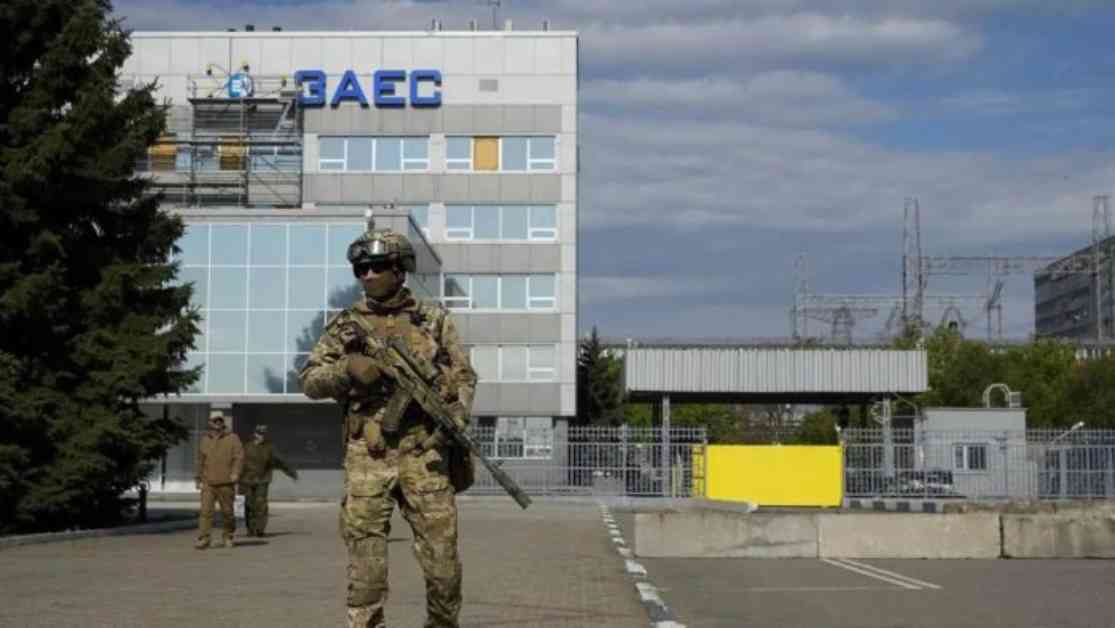In a recent development in Enerhodar, Russian occupiers have sentenced a 56-year-old employee of the Zaporizhzhia Nuclear Power Plant (ZNPP), Natalia Shulha, to 15 years in prison. The accusations against her include collaborating with Ukraine’s Security Service (SBU), as reported by Enerhodar Mayor Dmytro Orlov.
The Zaporizhzhia Nuclear Power Plant, located in southeastern Ukraine, holds the title of Europe’s largest nuclear power station and ranks among the world’s top ten. Unfortunately, the plant has been under Russian occupation since 2022, following its capture by Russian forces during the Battle of Enerhodar in March 2022. The International Atomic Energy Agency has been issuing alarming reports about the deteriorating safety conditions at the facility. With escalating military activities in the region, the looming threat of a nuclear disaster, whether accidental or intentional, is a grave concern.
The Russian authorities have accused Natalia Shulha of engaging in “attempted sabotage in collusion with SBU officers.” Allegedly, in June 2024, she made an unsuccessful attempt to sabotage a power line in Enerhodar, with the intention of disrupting electricity supply to a district in the city.
According to Mayor Orlov, Natalia was abducted by occupation law enforcement officers on July 12th of the previous year and subsequently taken into custody. He expressed concerns about the unjust arrest of civilians in the occupied territories by the Russians, who use such actions to paint a false narrative of capturing “terrorists” and justify their presence in Enerhodar.
Earlier statements from ZNPP General Director Ruslan Karikov shed light on the deteriorating conditions at the plant under Russian control. Karikov highlighted the continuous decline in safety standards at ZNPP, attributing it to factors such as power outages, non-standard operation of systems, inadequate maintenance and repairs, violations of nuclear regulations, lack of skilled personnel, and overall militarization of the facility by Rosatom, the Russian state atomic energy corporation.
Karikov emphasized the dedication of the plant’s remaining personnel in upholding nuclear and radiation safety standards for as long as possible. Many employees of ZNPP have relocated to Ukrainian-controlled territories, where they are now working at other nuclear power plants in the country.
Escalating Tensions and Humanitarian Crisis
The situation in Enerhodar reflects the broader humanitarian crisis unfolding in Ukraine as a result of the ongoing conflict with Russia. The arbitrary arrests of civilians, such as Natalia Shulha, only serve to exacerbate the already dire circumstances faced by the local population. As international organizations continue to raise concerns about the deteriorating conditions in the region, it is crucial for the global community to take decisive action to address the escalating tensions and prevent further human rights violations.
International Response and Call for Action
The sentencing of Natalia Shulha and the deteriorating safety conditions at the Zaporizhzhia Nuclear Power Plant underscore the urgent need for international intervention to ensure the protection of civilians and prevent a potential nuclear disaster. As world leaders deliberate on the appropriate course of action in response to the crisis in Ukraine, it is imperative that they prioritize the safety and well-being of the affected populations. The fate of individuals like Natalia Shulha serves as a stark reminder of the human cost of armed conflicts and the importance of upholding fundamental human rights principles in times of crisis.
As the situation in Enerhodar continues to unfold, it is essential for the global community to remain vigilant and actively engage in efforts to support the people of Ukraine and safeguard the region from further devastation. The plight of individuals like Natalia Shulha highlights the resilience and courage of those who find themselves caught in the crossfire of geopolitical conflicts, underscoring the need for solidarity and compassion in the face of adversity.

















